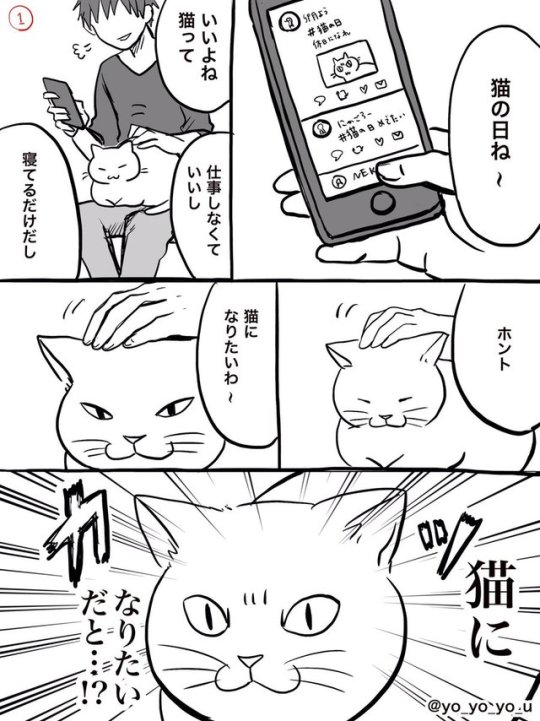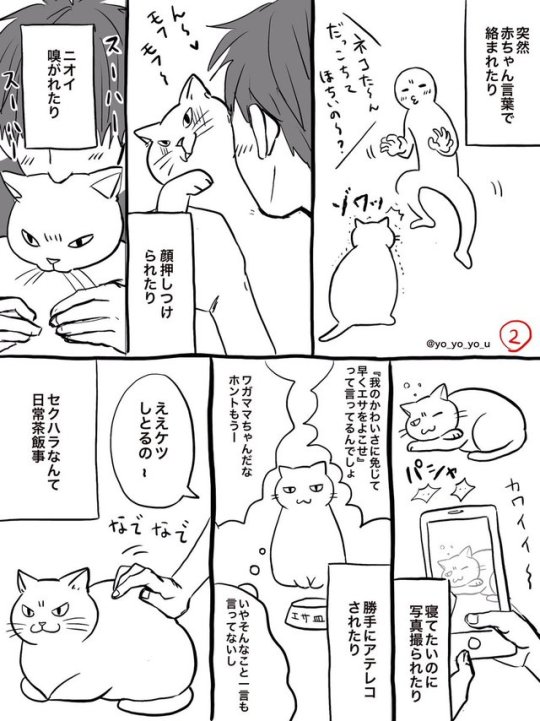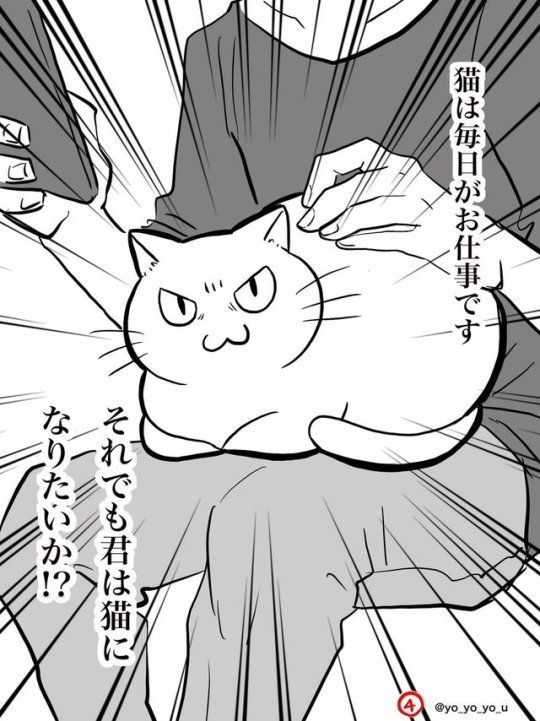A blog to help me study Japanese while living in Japan
Don't wanna be here? Send us removal request.
Text
How to type special Japanese characters?

Most characters can be typed easily. To type standard character such as か, we type ka. And to type が, we type ga. But to type these character below will need some trick. Let’s start!
ー (Dash in katakana) – type ‘-‘ as in テーブル ん (n) – type ‘nn’ (double N) づ (dzu) – type ‘du’ を (o) – type ‘wo’ (it’s wo character but read as o) っ (small tsu/double consonnant marker as in きって) – type the consonant twice. In きって (kitte) just type kitte and it will show up as きって To type small vowels such in ウェールズ , type ‘x’ before the vowels. So for ウェールズ, write uxe-ruzu. This applies to any small kana you want to write such as: ぁ xa – ぃ xi – ぅ xu – ぇ xe – ぉ xo ティ (ti) – type ‘thi’. Can also be achieved with ‘texi’ (using method above)
…………………………………………
Help me to type Japanese in my phone/computer!
Check out this article for instructions on how to type Japanese in your android/iphone/pc/mac~ http://crunchynihongo.com/how-to-type-in-japanese-on-your-android-iphone-pc-mac/
Happy learning! 。゚✶ฺ.ヽ(*´∀`*)ノ.✶゚ฺ。
#oh my god! I could never figure out who to write small vowels! THis has saved my life#xぁぇぃぉぅ わああぁぁ嬉しいわ!#あああああぁぁぁぁぁぁ
1K notes
·
View notes
Text
youtube
Perfume on Tik Tok
「暇を持て余した神々の遊び」っていうコメントが最高。
ホントちょっと遊びで踊っただけでこのクォリティー。
29 notes
·
View notes
Text
Japanese topsy-turvy words
Topsy-turvy… Yeah. Sounds dumb. IDK maybe there’s proper term for this. What I mean is a pair of words consisting of the same 2 kanji (with the same readings, mostly), only in a different order, like this:
日本 「にほん」 Japan 本日 「ほんじつ」 today
花火 「はなび」 fireworks 火花 「ひばな」 spark
一万 「いちまん」 ten thousands 万一 「まんいち」 unlikely event, one in 10.000 chance
会社 「かいしゃ」 company 社会 「しゃかい」 society
女子 「じょし」 girl 子女 「しじょ」 sons and daughters
父親 「ちちお��」 father 親父 「おやじ」 one’s father, old man
途中 「とちゅう」 on the way, midway 中途 「ちゅうと」 in the middle, half-way
階段 「かいだん」 stairs 段階 「だんかい」 level, phase
会議 「かいぎ」 conference, meeting 議会 「ぎかい」 congress, parliament
現実 「げんじつ」 reality, true fact 実現 「じつげん」 realization, materialization
海上 「かいじょう」 marine, by/at/on sea 上海 「しゃんはい」 Shanghai
苦痛 「くつう」 pain, agony 痛苦「つうく」 anguish
関連 「かんれん」 relation, relevance 連関 「れんかん」 relation, linkage
形象 「けいしょう」 shape, figure 象形 「しょうけい」 hieroglyphics
2K notes
·
View notes
Text
So hey, look what I just discovered, a superhero cartoon, made in the United Arab Emirates and set in Dubai, with a teenager girl as a protagonist, called Emara: Emirates Heroe.
youtube
And it actually looks very cool, embracing both western and japanese concepts and styles, while remaining distinctly arab thanks to the setting and costumes, and I gotta say, that’s a damn fine clever integration of the hijab as part of her costume.

As a man both interested in cartoons and islamic culture, this is quite the fascinating little show, specially since these types of media are so rare from that part of the world.
16K notes
·
View notes
Photo

One of the questions I get asked the most often is “How do I make my Japanese more colloquial?” or “How do I sound more like a native?” There’s also a lot of discussion about “Textbook Japanese” versus Japanese you’ll hear while on the train, in line at the store, or out with friends.
This post is quite long and explanatory, so here is a list of what’s covered under the cut!
TABLE OF CONTENTS 1. Plain form 2. Dropping particles 3. です to だ 4. Sentence ending particle の 5. 〜ています → 〜ている → 〜てる 6. て form does not always equal command 7. じゃない & じゃん 8. と to って 9. さ 10. なんか 11. なんて
Keep reading
3K notes
·
View notes
Photo


My Brother’s Husband tells the story of Yaichi, a single father raising his daughter, and Mike Flanagan, a Canadian man who was married to Yaichi’s twin brother Ryoji. Mike travels unannounced to Japan after his husband’s recent passing. Yaichi must face his deceased twin’s sexuality and overcome his own preconceptions, and Mike learns what caused the brothers to drift apart.
The manga by Gengoroh Tagame will debut as a TV drama on NHK’s BS Premium in March 2018 and will star Ryuta Sato as Yaichi and former sumo wrestler Baruto Kaito as Mike.
Read more here: kotaku.com and Wikipedia.
32K notes
·
View notes
Photo

#illust #illustration #art #dog #shibainu #イラスト #柴犬
(≧∀≦)ギャハハハハ!!
23 notes
·
View notes
Photo

出会いと別れのある季節。別れは終わりではなくて、またどこかで出会えると信じられる力を磨く時間。若い時に親友を交通事故で亡くしたことがある。もう会えないのかとその時には思ったけれど、それから23年間毎年命日には実家を訪れて、一人息子を亡くしたご両親とお話し、お参りをしてきた。きっと私にはそういう役割があったのかもしれない。
大学四年生の時に、大病を患い、大学は卒業できたものの、しばらく苦しんだ。若い時にはずいぶんと悩み、四苦八苦してきた。おかげで長い間、仕事もできず、苦しい時間を過ごした。でも、それで良かったと思っている。わたしはそれまでずいぶんと傲慢で、人の気持ちの分からない人間だったから。今でも十分傲慢で分からず屋だが、化け物だったと思う。
三月四月で退職される方がいて、別れがあった。三月で辞める方とは、きっとまたどこかでつながる縁があり、自分から訪ねて行けば会えるという環境。それは自分次第。ぜひとも機会を作って会いに行こうと思う。四月で辞める方は、もう一生会えない可能性もある。昨日も一緒に働いていて、少し沈んだ表情をされていたのが気になったので、今日は思い切って、洋菓子店で焼き菓子を購入して買って行った。その人の分だけではなくて、土曜日出勤する人の分も購入した。余計なことかなと思い、悩んだけれどやってよかったと思っている。4月で辞める方は、ちょうど今日、お別れの挨拶で、チームのみんなにプレゼントを配っていたので、良いタイミングだった。
思い立ったが吉日だと思っている。自分を信じて、時を重ねていこうと思っている。
81 notes
·
View notes
Text
My Japanese Learning guide
Or as I like to call it SRS SRS SRS!
(Step 0, learn kana, I learned it through rote memorization at school but I’m sure there’s lots of guides that have better ways. I don’t care how, just learn it. After that I don’t ever want to hear the word romaji out of you mouth again.)
1. Learn Vocab
They say you can understand basic conversations once you’ve got 2000 vocab under your belt. Not sure that’s true but it’s a good place to start.
SO you are going to want to use a SRS flashcard system to study smart. (SRS guide)
The default is Anki. It’s not pretty, but does what you want and is completely customizable provided you know how. You can find lot’s of useful set people have already made for free. As you learn more vocab and grammar you should start creating your own lists from words you encounter in native resources, start writing sentences instead of words, and trying to define the word using as much Japanese (instead of your native language) as possible.
I do not like Anki. (yeah I’m a spoil sport)
My vote is instead 100% behind Jalupnext! I can not say enough about this site! Unfortunately after the first 100 cards all the decks cost money. But boy are they worth it. Each card comes with native audio recording and by the time you get to the intermediate cards they are in 99% Japanese! This is so great for getting you to think in Japanese and reach that next level. The audio is also great for shadowing. I really challenge myself to try to guess the end of the sentence by just looking at the beginning, and shadowing the audio over and over again until I get it down smooth without looking. I’m paying for these cards right? might as well milk them for all they’re worth.
2. Kanji
A lot of textbooks don’t start with Kanji until later. That is a mistake. You should be learning it as soon as possible from the beginning. Another edit; skip the writing part altogether. With the advent of modern technology we only really type anymore anyways. If you know the kanji you want to type and their reading, you can type in Japanese no problem. So save yourself the pain of learning to write. I’m living and working in Japan right now. They only thing I ever write on a regular basis is my name. Trust me just skip it for now.
But you should be learn how to read kanji through Wanikani!
This website teaches you kanji through mnemonics and SRS flashcards. This is the only way you’ll actually be able to learn 2000 kanji in only a few years. It’s paid, but boy does it work. Kanji used to be my weakest point. Now at only half way through the program I can read most manga no problem, and find my way around a web page just fine.
A sidenote: This site teaches you vocab as well, but because it is not ordered by usefulness and does not introduce vocab that does not use kanji this should not be your main source of vocab. Instead the vocab is there to really reinforce that you know your kanji readings and to go over any reading exceptions.
3. Grammar
Honestly I’m not great at studying this and once you get the basics down you should be able to understand and learn new grammar just by interacting with native material often enough. But if your goal is to pass some kind of test like the JLPT you’ll probably need to study it more formally.
Lucky for you, there is this great new free SRS website!! Bunpro.jp
It has gathered together all the grammar by JLPT level and their online explanations and then tests you own example sentences, fill in the missing grammar style. Did I mention it’s free??! You have the option to add in your own sentences to be tested on which you should 100% do. Taking the time to find example sentences reinforces the grammar, really helps you remember and you can cater it to your Japanese vocab level. There’s no native audio but you should still try speaking it out loud too.
Also it’s Free!
4. Writing
Also something I’m not great at practicing. Which is dumb because again it’s something you can do effectively for free!
Challenge yourself to write a small diary once a day, about things you did or opinions on specific subjects.
Then upload it to lang-8.com and get it corrected by native speakers! For free! This is a great way to practice new grammar, figure out words that are lacking in your daily life, and find more natural ways to express yourself. (while you’re there, correct some entries in you native language; it’s only fair and it’s actually pretty fun!) If you use Anki or another flashcard system consider adding corrected sentences you think you’ll use often.
5. Put it to use!
These are all stepping stones for actually interacting with native materials!
Find Japanese books, manga, videos, music, games, dramas, podcasts whatever! Figure out what you love and then do it all in Japanese. That way you won’t lose interest.
Find language partners and get talking! Hellotalk is a great free app for conversing with native speakers of the language you’re studying.
I’ll probably make a separate post of native resources I use later.
So that’s my study battle plan. Really it’s more of a study battle dream. I don’t do step 3 and 4 enough... But I’m working towards it! Hopefully others can find this helpful.
I will add one more thing. If you’re working towards conversing, you’ll notice none of these resources require actually speaking. You’ve got to add that in yourself. Repeat sentences and words out loud until they’re smooth and you can say them without looking. Speaking is more muscle memory than anything and the more you get your mouth moving the better!
がんばって!
#Japanese#Language#Wanikani#Hellotalk#Study#Grammar#Vocabulary#Kanji#言語#日本語#勉強#Lang-8#Hello talk#learning resources#SRS#flashcards#Japan
3 notes
·
View notes
Photo
My favorite manga
Go buy it


It’s time for the FINAL license announcement! 💕This manga is a delightful piece of fiction and there’s no other manga quite like it in English. We’re really excited to share it with you!
When a woman from Japan becomes roommates with a Muslim woman from Saudi Arabia, they have a lot of cultural differences in their American home. But their hilarious adventures prove that friendship is the best international custom of all! ✌
Brand-new license announcement: SATOKO AND NADA manga by Yupechika!
http://www.sevenseasentertainment.com/2018/03/16/friendship-knows-no-borders-in-seven-seas-license-of-satoko-and-nada-manga/
250 notes
·
View notes
Text
When kanji have very long readings fit into them I feel like it’s not fair. 承る seems harmless? No, it’s read as うけたまわる...you can’t fit like two whole words into a kanji tHAT’S CHEATING (ノ`Д´)ノ ==== ┻━━┻
391 notes
·
View notes
Text
今日は #1
今日はいつも通りの火曜日でした。
授業は一つしかなかったのどその時間以外はずっと準備しました。
放課後、先生方と新しいパソコンについて打ち合わせを行いました。
全部日本語で行いましたが、面白かったです。
新しいパソコンは超かっこいい。
スクリーンだけをとったら、タブレットとしても使える。
仕事の後で、ケーキボールというデザートを作りました。
まだ完成品食べてないから美味しいかどうかまだわからないけど、明日先生方が気に入ってくださるなら、うれしいです。
0 notes
Text
Resume Tips from the After JET Conference
I hope a few of these are helpful to you!
1. Don’t put your address, especially if it isn’t in the country you want to work in. Use that space for something else. You also don’t need an objectiveat the top of your resume anymore.
2. If you are able to, put down a local phone number, to make you look like a local hire. You can do this by purchasing a number from Skype that you can use.
3. Add what month you’re ending JET to your resume, so that they know when you are available.
4. Make subtitles and job positions pop off the page by making the font bolded, and a larger size than what the rest of the content is. Feel free to use colour, but be consistent. Make what you want a potential employer to focus on be immediately noticeable at a quick glance. For example:
Sub-title: WORK and VOLUNTEER EXPERIENCE = size 12 Position: JET Program ALT = size 11 (obviously put in the full title) What you did: Created/Led/Developed….. = size 10
5. Use your space! You don’t have a lot to work with (2 pages maximum!) so make the most of it and make your margins as small as possible. If a sentence takes up two lines, use the full two lines or cut it down to a single line (preferred). If you’re going to use space for something, use it for content or to make things pop on the page, as mentioned before.
6. That being said, keep it short and sweet. Try your best to keep information to a single line. One position should have around 4 bullet points of what you did at that job. Quality over quantity, as seeing a wall of text can be overwhelming for whoever is reading your resume.
7. Quantifiable results are your friend. So you taught English in Japan. That’s vague! How many schools, how many students, and at what level. If you taught over 100 students regularly, that’s a huge thing! Highlight that. Put in how many JTEs you worked with so that they know you can work with lots of bosses. Do the same for anything else you can quantify. However, if the number of whatever you did isn’t impressive, you can leave it out.
8. Did you teach eikaiwa? Who did you teach and what was the content. How often? What did you achieve through that/what did your students take away from it? Did you coach speech contest? Put down what achievements your students may have won!
9. Don’t put in Japanese terms for a non-Japanese job. They won’t know what you’re talking about.
10. Tailor your resume to the job. I used to think that meant what job positions/skills you put on, but it’s more than that. Look at the job posting and the buzzwords they use. Are they looking for someone who can manage projects, collaborate with other departments, and promote the organisation to new businesses/partners? Use those words in your resume! As in you didn’t team-teach with 5 JTEs, you collaborated with 5 Japanese teachers of English to create and develop lesson plans for x number of students!
11. Use action words. You didn’t “oversee” a project, you “managed” it. You led/planned/created/developed/spearheaded/conducted/organised/analysed/presented/promoted/etc. There are lots of online resources to help you use different that show what you did in an active manner.
12. Don’t put it on if it isn’t relevant. Don’t put down anything to do with high school as it shows your age. If the job has nothing to do with teaching, don’t emphasise the teaching part of JET. Talk about teaching in a way that highlights what skills you picked up (flexibility, able to think on your feet, speak to large audiences, work with different types of people, multitask, etc). It’s not about WHAT you taught (unless it’s something cool like a Black History Month lesson, cultural lessons etc that are RELEVANT), but HOW you taught.
13. Don’t put down Dean’s List, etc because your academic achievement is shown through your GPA (USA of course). However, societies and scholarships, etc can be useful if you have the space for them as they show you as a well-rounded person. If you can also show that people have invested in you with scholarships/fellowships, no matter what the amount, then put it on there.
14. Have a Skills section to highlight anything else you want them to know. It can be your proficiency in Microsoft Word, programming skills, other software skills like Photoshop, and always put down social media since that’s something most of us can do! Feel free to put down a couple of interests if you have space too, so they know what kind of person you are outside of work things.
15. Have a Super Resume. That means a document with everything you could possibly put on a resume. When you find a job you want to apply for, simply cost and paste what you need from the super resume and then tailor it to the position from there. Keep updating it too!
101 notes
·
View notes
Photo




猫の漫画を描きました #猫の日 https://twitter.com/yo_yo_yo_u/status/966607399564881921/photo/1
397 notes
·
View notes
Photo

Snow in Shinjuku Instagram / Facebook / Twitter
6K notes
·
View notes
Text
hottest language learning tip
write a diary
literally
just write a diary, it has helped me sooo much and i dare say it has been the most developing thing i’ve done while learning french, nothing else compares
1. you’re exposed to the language daily
2. you quickly see which words are missing from your vocabulary
3. you learn to write about the things you think about a lot
4. learning to actually think in your target language
5. having to look up words and when reading the entry back a couple of days later you can’t even remember which words you didn’t know
6. going back to the earlier entries and seeing all the mistakes and knowing how much better you’ve become
7. when you’ve been writing for a few months and your target language becomes a natural way for expressing yourself
8. when you’ve been writing for a few months and you start seeing the diary writing as a way of self-expression and stressrelief, and the language learning aspect becomes natural and secondary
9. filling out a whole book using only your target language and physically seeing how much you’ve accomplished
38K notes
·
View notes
